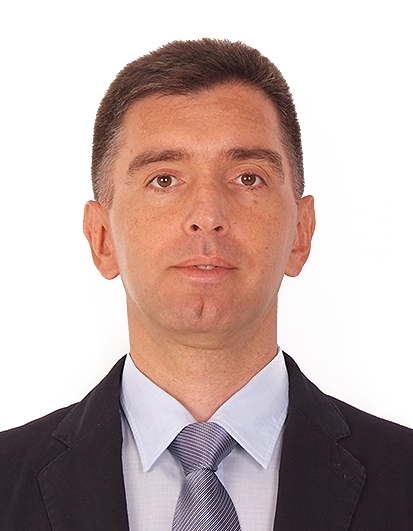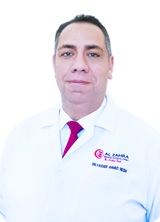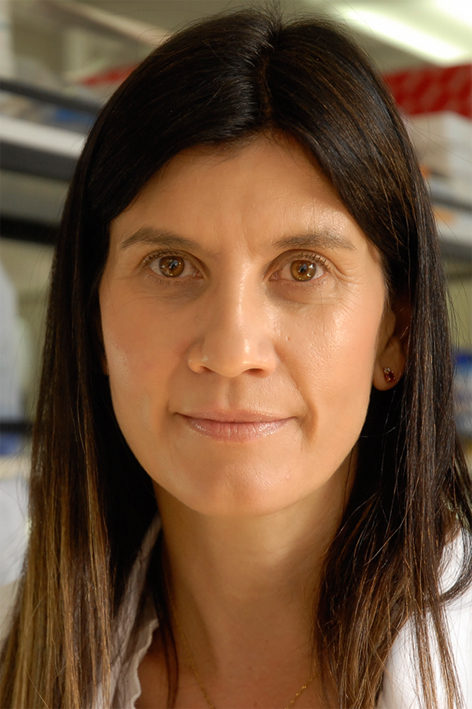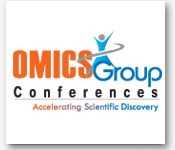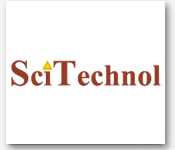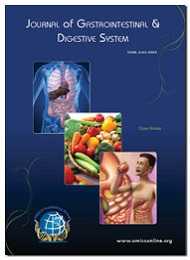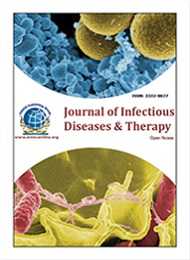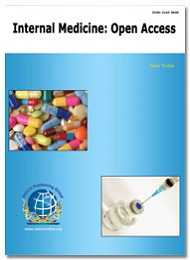Theme: Advanced therapeutic options and treatment procedures for gastrointestinal disorders
Gastro-2015
OMICS International, the World Class Open Access Publisher and Scientific Event Organizer is delighted to host “International Conference and Exhibition on Gastrointestinal Therapeutics” during August 25-27, 2015 at Valencia, Spain. This gastrointestinal conference highlights the theme “Advanced therapeutic options and treatment procedures for gastrointestinal disorders”. For more details please visit conference series.
OMICS International organizes 300+ International Conferences every year across USA, Europe & Asia with support from 1000 more scientific Societies and publishes 400+ Open Access Journals which contains over 30000 eminent personalities, reputed scientists as editorial board members.
Gastro-2015 mainly focuses on the latest diagnostic and therapeutic techniques for gastric diseases. The gastro conference discusses the latest research outcomes and technological advancements in the field and brings together leading gastroenterologists, surgeons, physicians, research scholars, students along with industrial and pharma professionals to exchange share their views on critical aspects of gastroenterology research. This event brings together Presidents and Eminent Personalities to explore opportunities on emerging platforms in the field of gastrointestinal therapeutics. With members from around the world focused on learning about latest diagnostic and treatment procedures of various gastro diseases and all the related aspects of gastrointestinal diseases this is your best opportunity to reach the largest assemblage of participants from the entire world. From the workshop and speech of the eminent people of gastroenterology, you can update your knowledge about current situation of gastroenterology and receive name and recognition at this 3-day event. World-renowned speakers with their ultimate talks on the most recent techniques, tactics, and the avant garde technologies in gastrointestinal therapeutics are the hallmarks of this gastric endoscopy conference. Gastro-2015 is one of the best conferences among OMICS conference series.
Gastrointestinal Carcinogenesis and Therapeutics
Gastrointestinal Carcinogenesis as a group are the second most common cancers diagnosed in both men and women. Of all the GI cancers, colorectal cancer is the most common one amongst newly diagnosed gastroinestinal cancers and pancreatic ductal adenocarcinoma is the most fatal one due to lack of early diagnosis and limited success of systemic therapeutics increased research activities towards development of novel therapeutics. Remarkable progress has been made in pathogenesis, biology, and molecular genetics of Gastric surgery.
Gastro cancer is managed by therapeutics with multi-disciplinary approach, involving several medical, surgical, radiological, pathological, gastroenterologists, hepatologists, and scientists. Key innovations and novel therapies have led to improved understanding of pathogenesis and achieve earlier detection, and advances in the management of Gastric banding and gastroplasty surgery. The most prevalent of gastrointestinal cancers is colorectal cancer in the Western world and gastric cancer in the Eastern world. Colorectal cancer is the third most common cancer in the world, with nearly 1.4 million new cases diagnosed in 2012 and Gastric cancer accounts for approximately 9,52,000 deaths each year worldwide. There are about 900 medical universities working on gastrointestinal cancers worldwide.
Inflammatory bowel disease Research vs Treatment / Management
The care of a patient with inflammatory bowel disease Research can be either medical or surgical in nature or, in many patients, a combination of both the treatment and Management of IBDR. The goals of therapy are the achievement of remission and the prevention of gastro disease flares maintenance.
The concept of deep mucosal healing, particularly in Crohn’s disease, is becoming increasingly advocated. There are several studies, primarily involving anti-TNF agents and occasionally immune modifiers; that have shown that the elimination of gastrointestinal inflammation as demonstrated by endoscopic and histologic criteria results in a decrease in the rate of surgery, the use of corticosteroids, and the rate of hospitalization.
The medical approach for patients with symptomatic care and mucosal healing following a stepwise approach to medication, with escalation of the medical regimen until a response is achieved.
Aminosalicylates, Antibiotics, Corticosteroids, Immunomodulators, Pharmacotherapy, Tumor necrosis factor inhibitors Monoclonal antibodies, UC is surgically curable. Crohn's disease and ulcerative colitis are the principal types of inflammatory bowel disease. In the United States, it is currently estimated that about 1-1.3 million people suffer from IBD. According to the Crohn's & Colitis Foundation of America, about 1.4 million Americans have Crohn’s disease or gastric ulcer. Of those, about 700,000 have Crohn’s.
Gastrointestinal Bleeding- Treatment and Management
Acute upper gastrointestinal bleeding is the most common gastroenterological emergency and has a considerable morbidity and mortality. Management strategies have changed dramatically over recent decades due to the introduction of acid suppressive therapy histamine-2 receptor antagonists and especially proton pump inhibitors and endoscopic therapy.
Patients with Gastrointestinal Bleeding can present with various symptoms such as hematemesis, hematochezia, melena, or progressive anemia. Immediate evaluation and appropriate treatment is of major importance in these patients. Laparoscopic gastric surgery is generally safe in the setting of gastrointestinal bleeding, as long as the patient has been sufficiently resuscitated before the procedure. Treatment and Management with scopy examinations summarized only one endoscopic complication perforation of a diverticulum was reported. A nasogastric tube can be used to administer this solution if the patient is unable to tolerate it by mouth. Those patients who have bled and apparently stopped, it is reasonable to administer the prep and perform the examination on an elective or semi elective basis. For those patients with continued hematochezia, the examination should be performed as soon as possible. Gastrointestinal inflammation results in 250,000 to 300,000 hospitalizations and 15,000 to 30,000 deaths per year in the United States. More than $2.5 billion is spent annually for inpatient care of this problem.
Pancreatic diseases and Treatment
Pancreatic diseases are inflammation of the pancreas it also synthesizes and secretes insulin and glucon. Pancreatic or pancreatitis disease may be caused by gallstones, chronic alcohol use, trauma, medications, infections, tumors, and genetic abnormalities that is often severe and constant over several days, and may be accompanied by fever, nausea, vomiting, tachycardia and abdominal swelling.
Treatment for Pancreatitis is diagnosed preliminarily by physical exam and the levels of amylase and lipase in the blood. Other tests it may be done to detect gallstones or to identify the damaged pancreas and other blood tests may need to be done.
Gallstones may be removed using therapeutic endoscopic retrograde cholangiopancreatography (ERCP). This year, an estimated 48,960 adults (24,840 men and 24,120 women) in the United States will be diagnosed with pancreatic cancer. It is estimated that 40,560 deaths (20,710 men and 19,850 women) from this disease will occur this year. Pancreatic cancer is the eighth most common cancer in women and the fourth leading cause of cancer death in men and women.
Emerging therapies for Viral Hepatitis and Liver Fibrosis
Emerging therapies to treat viral hepatitis C virus (HCV) are evolving rapidly. With the introduction of interferonâ€α monotherapy based on triple therapies with pegylated interferonâ€α and ribavirin , the chances of curing patients infected with HCV genotype 1 have improved from <10% to approximately 70%.
Liver fibrosis occurs as a result of a wide range of injurious processes and in its end-stage results in cirrhosis. Indeed, liver fibrosis and cirrhosis represent a major worldwide healthcare burden. Recent progress in liver transplantation, the management of portal hypertension and the treatment of chronic viral hepatitis have had an important impact.
However, these approaches are not without their limitations – in particular, issues regarding organ availability for transplantation and serve to highlight the urgent requirement to influence pharmacologically the underlying fibrotic process in many patients.
Treatment for Functional GI disorders
Functional Gastrointestinal disorders remain a common problem in the pediatric age group, with pediatric gastro oncology. These conditions were first recognized in 1958 when he coined the earlier term ‘recurrent abdominal pain’ (RAP) for a group of children with recurrent or persistent abdominal pain that interfered with functional daily living and had no evident organic etiology.
This review focuses on dietary, pharmacologic, cognitive behavioral and complementary medical treatment. IBS is most common in adults along with gastroenteritis and most of the treatments in the adult population have been geared toward treating that disorder.
Medications used to treat depression, anxiety, and seizures have become increasingly attractive agents for use in Functional Gastrointestinal Disorders because they act upon the central and peripheral nervous system to modulate mood, visceral, and neuropathic pain, as well as autonomic function, in part, through anticholinergic effects.
Antidepressants such as tricyclic antidepressants (TCAs), serotonin reuptake inhibitors (SSRIs), and monoamine uptake inhibitors improve symptoms of IBS in adults. Antidepressants act by decreasing pain perception, improving mood and disturbed sleep patterns, and perhaps regulating motility. Of all the functional GI disorders, irritable bowel syndrome (IBS) is the most studied and among the most common gastrointestinal inflammation. IBS is highly prevalent, affecting between 10–15% of the U.S. population. A Significant proportion – 35% to 40% of individuals who report IBS in the community are male and 60% to 65% of individuals who report IBS in the community are female.
Gastrointestinal Pharmacotherapy
Gastrointestinal Pharmacotherapy for functional gastrointestinal disorders, such as irritable bowel syndrome and functional dyspepsia, are complex conditions with multiple factors contributing to their pathophysiology. As a consequence and have posed significant challenges to the pharmaceutical industry when trying to develop new and effective treatments.
This review provides an overview of these difficulties and how the industry is reshaping its drug developmental strategies. It describes some of the more significant and encouraging advances that have occurred, and discusses how future research might embrace the opportunities provided by advances in genetic and in particular, epigenetic research on gastrointestinal inflammation.
Gastrointestinal Therapeutic Endoscopy- Advancements and Challenges
Advances in gastrointestinal Therapeutic endoscopic technology, with emphasis on imaging and treatment of disorders of the esophagus and small intestine and extend our knowledge regarding the endoscopic diagnosis of gastroesophageal reflux disease with the aid of endoscopic therapy and suggest new potential applications for biliary endoscopy.
Despite initial great enthusiasm for these procedures, the lack of well-done, controlled, prospective studies with clear endpoints and adequate follow-up has limited the current role for these modalities in our therapeutic arsenal against gastroesophageal reflux disease with advancements and challenges. In 2009, the U.S. market for GI endoscopic devices was valued at over $1.6 billion. This is an increase of nearly 5 percent from 2008. Nearly 23 million procedures were performed with GI endoscopic devices for gastroenteritis in 2009. More than 60 percent of these were colonoscopies. Virtual colonoscopies decreased by more than 7 percent in 2009 from 2008, but are expected to show notable growth over the next five years.
Gastric Bypass Surgery- Types and Treatment
To test the feasibility of methods to conduct a larger multisite trial to determine the long-term effect of gastric bypass surgery complications, Roux-en-Y gastric bypass surgery compared with an intensive diabetes medical and weight management -Weight Achievement and Intensive Treatment program for Type 2​ diabetes.
Use of NSAID’s and Antibiotic Therapy
The use of antibiotic therapy continues to increase as a result of accumulations of evidence of benefits in both primary and secondary treatment strategies for gastrointestinal inflammation. Gastrointestinal complications such as ulceration, bowel disease and related bleeding. These risks may be further compounded by the ancillary use of other adjunctive medications, such as nonsteroidal anti-inflammatory drugs (NSAID’s), corticosteroids, and anticoagulants. Given is the high prevalence of antiplatelet therapy in clinical practice, coupled with an increase emphasis on their extended use, especially after implantation of a drug-eluting stent, it is imperative that physicians know the potential benefits and the associated risks of antiplatelet therapy for primary or secondary prevention of cardiac ischemic events when combined with NSAID agents. Only with this understanding can physicians appropriately and fully evaluate the risk profile for each patient and either change medications or initiate prophylactic therapy in an attempt to reduce gastroenteritis complications.
Clinical Nutrition in Gastrointestinal Diseases
Food assimilation is the major function of the gastrointestinal tract. Many gastrointestinal diseases have important nutritional effects. Digestion and absorption of nutrients are discussed elsewhere. The focus will be on the role of the liver in regulating the supply of carbohydrate and lipid fuels as well as ensuring the availability of essential substrates to peripheral tissues. The clinical features of malnutrition and specific effects of malnutrition on the gastrointestinal tract and liver will be discussed along with diet therapy in gastrointestinal disease. Finally, an approach to clinical nutrition will be presented, including nutritional assessment and the rational use of enteral and parenteral nutritional support.
Traditional and Herbal Medications
Traditional medicine is the sum total of the knowledge, skills, and practices based on the theories, beliefs, and experiences indigenous to different cultures, whether explicable or not, used in the maintenance of health as well as in the prevention, diagnosis, improvement or treatment of physical and mental illness.
Herbal medications include herbs, herbal materials, herbal preparations and finished herbal products, which contain as active ingredients parts of plants, or other plant materials, or combinations.
Therapeutic activity refers to the successful prevention, diagnosis and treatment of physical and mental illnesses; improvement of symptoms of illnesses; as well as beneficial alteration or regulation of the physical and mental status of the body.
Probiotics as Gastrointestinal therapeutics
Probiotics are being used with increasing frequency as a treatment for several medical conditions, such as allergic diseases bacterial, renal diseases and renal cancer and urinary tract infections, and prevention of dental caries or respiratory infections. Probiotics are used as a treatment for a variety of gastrointestinal disorders. In this review, the historical perspectives, proposed mechanisms of action, formulations and delivery systems, safety, and specific GI disorders for which probiotics have been used are discussed.
Recent Advancements and Current research in Gastrointestinal Therapeutics
The present industry update, with information sourced from Gastrointestinal therapeutics companies regulatory and patent agencies as well as the current research on scientific literature. Despite this section being dedicated to recent advancements in ‘man-made’ drug research it is notable.
International Conference and Exhibition on Gastrointestinal Therapeutics
August 25-27, 2015, Valencia, Spain, Europe
Theme: Advanced therapeutic options and treatment procedures for gastrointestinal disorders
OMICS International is pleased to announce its annual conferences in 2015 and 2016. One of the premier annual conferences is Gastrointestinal Therapeutics Meeting. Open Minded International Conferences (OMICS) are determined to put forth a platform for eminent personalities to share their expertise and research at Gastrointestinal Therapeutics, Spain, Europe.
The gastro conference 2015 throws light on thought provoking topics and recent research in the field of Breast cancer like, gastrointestinal Carcinogenesis and Therapeutics, Inflammatory Bowel Disease Treatment and Management, Gastrointestinal Bleeding- Treatment and Management, Pancreatic diseases and Treatment, Emerging therapies for Viral Hepatitis and Liver Fibrosis, Treatment for Functional GI disorders, Gastrointestinal Pharmacotherapy, Gastrointestinal therapeutic endoscopy- Advancements and Challenges, Gastric bypass surgery, Recent Advancements and Current research in Gastrointestinal Therapeutics. The organizing committee is gearing up for an exciting and informative conference program including plenary lectures, symposia, workshops on a variety of topics, poster presentations and various programs for participants from all over the world covering all the aspects of gastroenterology.
Importance & Scope:
Gastro-2015 aims to bring together leading academic scientists, researchers and research scholars to exchange and share their experiences and research results about all aspects of gastro diseases. This gastro conference also provides the chance for researchers, practitioners and educators to present and discuss the most recent innovations, trends, and concerns, practical challenges encountered and the solutions adopted in the fields of Gastrointestinal therapeutics. It helps in promoting the advancement of gastroenterology. This gastro conferences provides a platform for organizations, companies, associations, societies, institutions, statutory bodies and other authorities and individuals interested in the causes, diagnosis, prevention and treatment of gastrointestinal diseases.
Gastroenterology is a specialty that tends to receive relatively little attention from a policy perspective and compared with other specialties, attracts relatively little charitable research funding. There have been increases in the incidence of most gastrointestinal disorders in Europe which have major implications for future healthcare provision. Gastrointestinal cancer is the leading cause of cancer death in Europe. It is also the most common cancer in men and the second most common in women after breast cancer. "Bariatric surgery conferences" is a general need for further research into the incidence, prognosis and public health burden of many gastrointestinal disorders across Europe and a particular need for more studies from Eastern Europe, along with pan-European and multinational studies.
For more details please visit- http://gastro.conferenceseries.com/
Market value of gastrointestinal therapeutics
Recent studies of market value of gastrointestinal therapeutics shows differences in different parts of the world. The gastrointestinal (GI) therapeutics market for irritable bowel syndrome (IBS), ulcerative colitis (UC), and Crohn’s disease (CD) in the eight major markets (8MM) — the US, UK, France, Germany, Italy, Spain, Canada and Japan — is expected to decrease in value from $6.8 billion in 2012 to $6.6 billion by 2019, at a negative Compound Annual Growth Rate (CAGR) of 0.3%, forecasts business intelligence provider GBI Research. The upcoming patent expiry of various major drugs in gastric surgery and other gastrointestinal diseases will register unfavorable growth in European markets. The patent expiries will harm the overall market value and the entry of generics and biosimilars will also have a strong impact on sales. The major factors currently stabilizing the market include the increasing prevalence of GI diseases, growing awareness of the importance of detecting these diseases early and the availability of effective diagnostics creates an urgent need for organizing this European gastroenterology conference 2015.
OMICS Group, the World Class Open Access Publisher and Scientific Event Organizer is delighted to host “International Conference and Exhibition on Gastrointestinal Therapeutics” during August 25-27, 2015 at Valencia, Spain. This "Gastrointestinal conference" highlights the theme “Advanced therapeutic options and treatment procedures for gastrointestinal disorders”. Gastro-2015 mainly focuses on the latest diagnostic and therapeutic techniques for gastric diseases. "Gastrointestinal conferences" discusses the latest research outcomes and technological advancements in the field and brings together leading gastroenterologists, surgeons, physicians, research scholars, students along with industrial and pharma professionals to exchange share their views on critical aspects of gastroenterology research. This gastro conference event brings together Presidents and Eminent Personalities to explore opportunities on emerging platforms in the field of gastrointestinal therapeutics. With members from around the world focused on learning about latest diagnostic and treatment procedures of various gastrointestinal diseases and all the related aspects of gastrointestinal diseases this is your best opportunity to reach the largest assemblage of participants from the entire world. From the workshop and speech of the eminent people of gastro conferences 2015, you can update your knowledge about current situation of gastroenterology and receive name and recognition at this 3-day event. World-renowned speakers with their ultimate talks on the most recent techniques, tactics, and the avant garde technologies in gastrointestinal therapeutics are the hallmarks of this gastro conference 2015.
A Unique Opportunity for Advertisers and Sponsors at this International event:
Conference Highlights
- Inflammatory bowel disease Research vs Treatment / Management
- Treatment for Functional GI disorders
- Gastrointestinal Carcinogenesis and Therapeutics
- Gastrointestinal Bleeding- Treatment and Management
- Gastrointestinal Therapeutic Endoscopy- Advancements and Challenges
- Emerging therapies for Viral Hepatitis and Liver Fibrosis
- Recent Advancements and Current research in Gastrointestinal Therapeutics
- Probiotics as Gastrointestinal therapeutics
- Clinical Nutrition in Gastrointestinal Diseases
- Gastric Bypass Surgery- Types and Treatment
- Pancreatic diseases and Treatment
- Traditional and Herbal Medications
- Use of NSAID’s and Antibiotic Therapy
- Gastrointestinal Pharmacotherapy
To share your views and research, please click here to register for the Conference.
To Collaborate Scientific Professionals around the World
| Conference Date | August 25-27, 2015 | ||
| Sponsors & Exhibitors |
|
||
| Speaker Opportunity Closed | Day 1 | Day 2 | Day 3 |
| Poster Opportunity Closed | Click Here to View | ||
Useful Links
Special Issues
All accepted abstracts will be published in respective Our International Journals.
- Journal of Gastrointestinal & Digestive System
- Journal of Infectious Diseases and Therapy
- Internal Medicine: Open Access
Abstracts will be provided with Digital Object Identifier by









